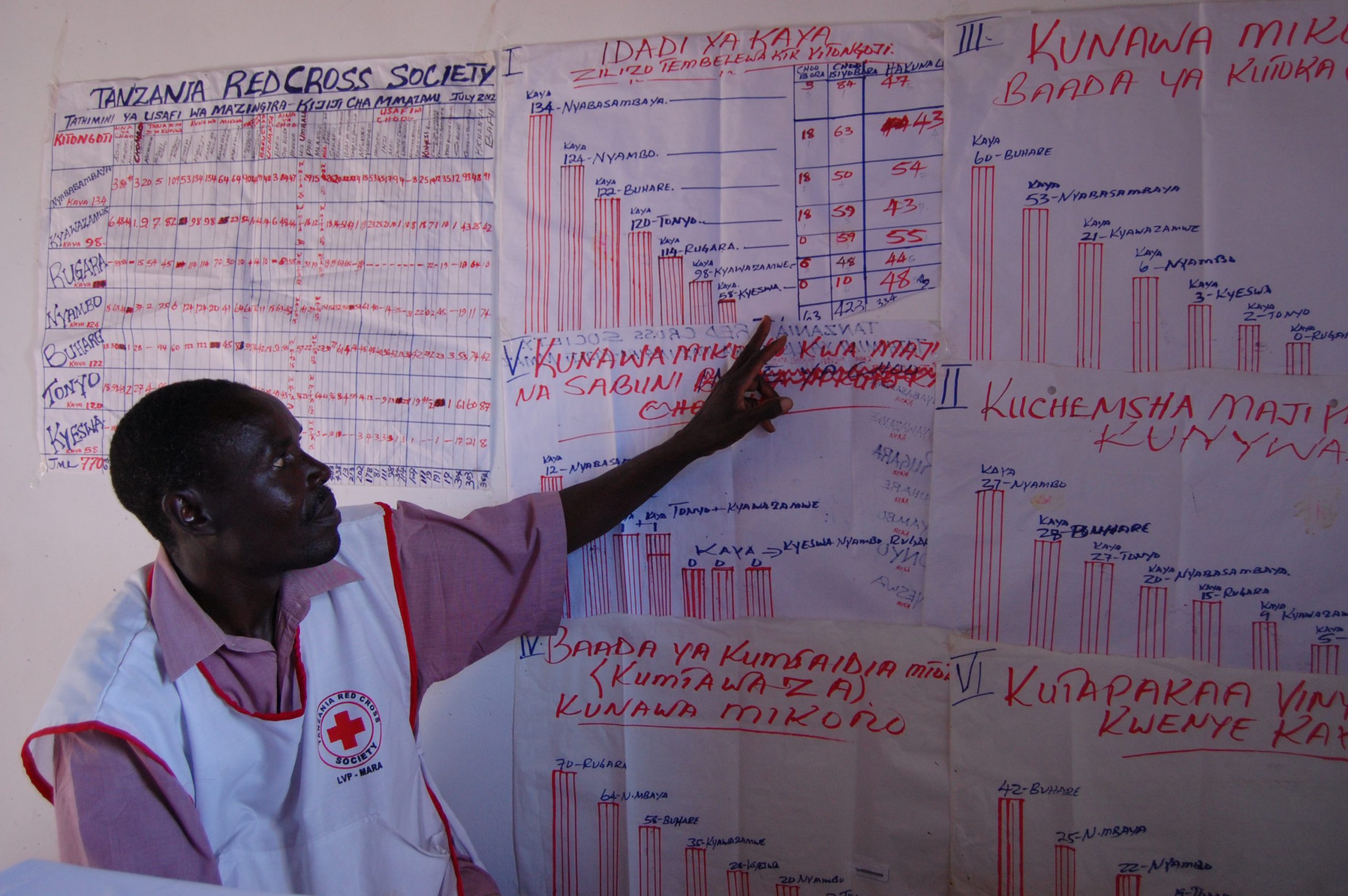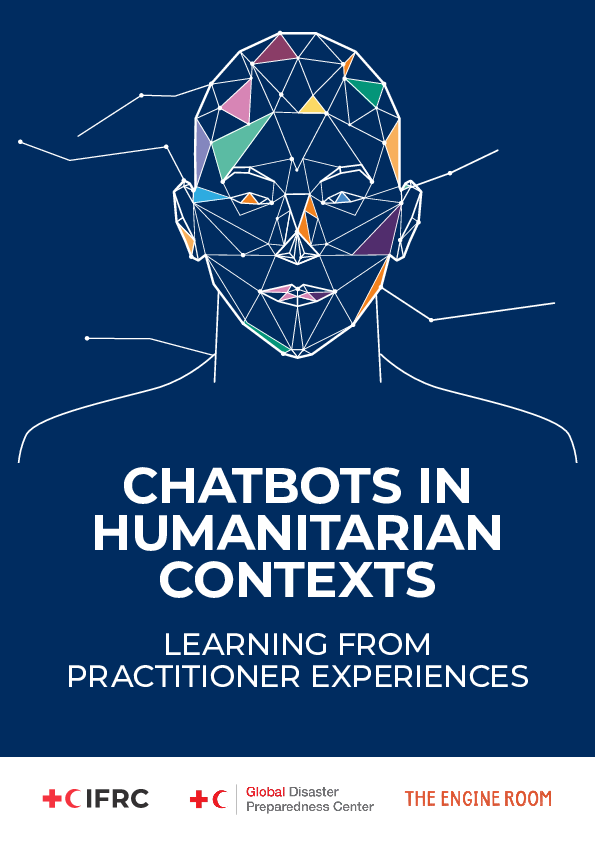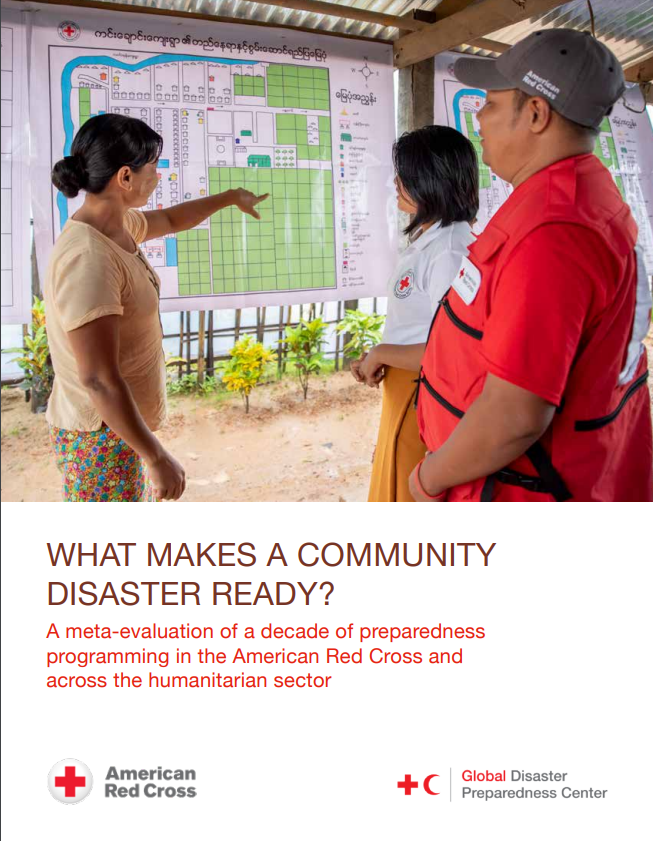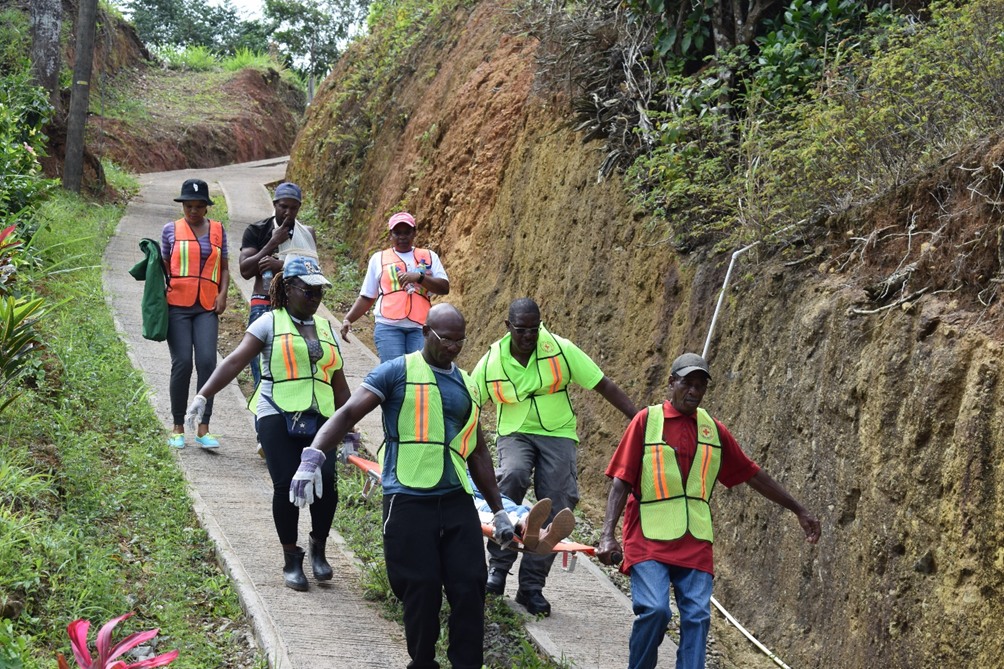GDPC Research Activities
Advancing Disaster Preparedness through Research and Scientific Collaboration
The Global Disaster Preparedness Center (GDPC) is committed to strengthening the knowledge base for disaster preparedness programming through research. We collaborate with universities, research institutions, and practitioners to build this evidence base and foster impactful cross-learning opportunities.
Our Approach
The GDPC prioritizes action-oriented research based on the needs articulated by the IFRC National Societies and the communities they serve. Through strategic partnerships with the IFRC global network, universities and research institutions, the GDPC is helping fill key gaps in the humanitarian community's disaster preparedness knowledge and evidence base. The knowledge generated is intended to support practitioners in designing, planning, and implementing effective disaster preparedness and risk reduction interventions, supporting vulnerable communities to better prepare for and cope with disasters. Our research activities are implemented through three main approaches:
Targeted Research Activities
The GDPC conducts and commissions targeted research projects to address and advance specific topics in disaster preparedness, risk reduction and humanitarian action. We collaborate with academics, IFRC National Society partners, and other humanitarian actors to carry out rigorous studies that strengthen the knowledge base and explore emerging issues. Our research focuses on areas such as localization, early warning systems, anticipatory action, migration, new technologies, climate change impacts, urban resilience, local innovation, and more.
Latest Publications
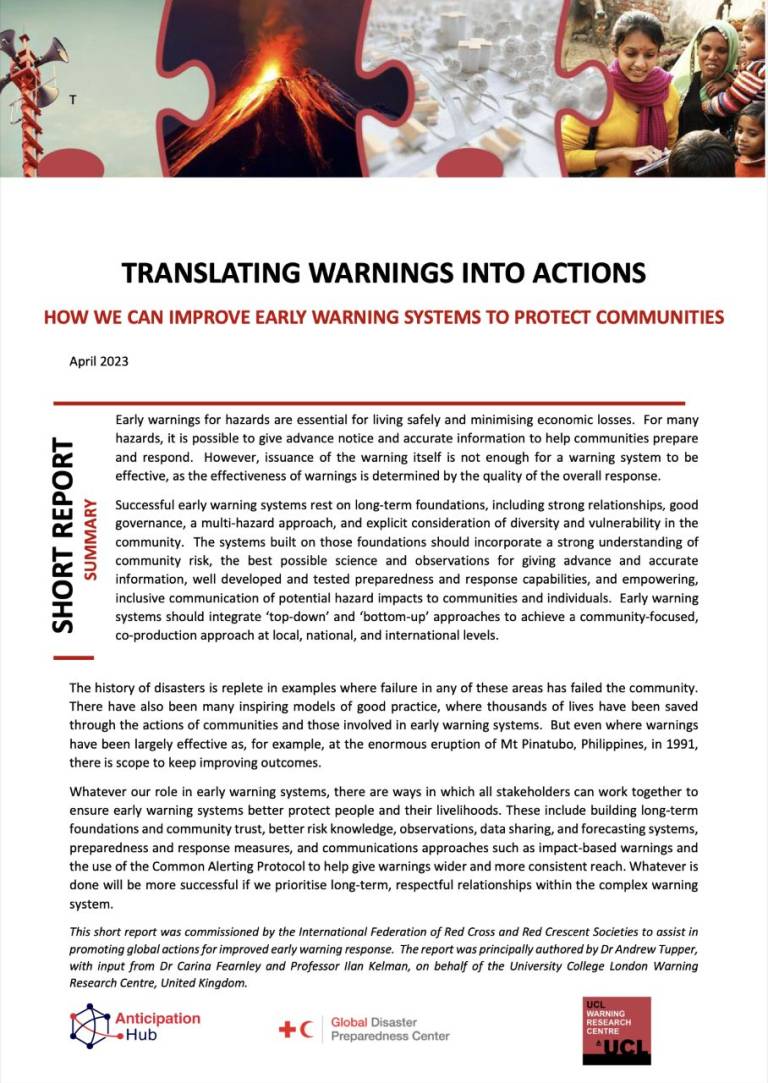
Translating Warnings into Action – How We Can Improve Early Warning Systems to Protect Communities
Small Research Grants
Our Small Research Grants program provides funding of up to $10,000 to university and academic researchers worldwide. This program focuses on generating insights and evidence from under-studied contexts, particularly in low- and middle-income countries. By supporting local research on disaster preparedness needs, we uncover valuable evidence that might otherwise remain unexplored.
Research Uptake and Collaboration
The GDPC actively promotes and supports research collaboration across the IFRC global network and beyond. As one of the founders and an active member of the Red Cross and Red Crescent Research Consortium (RC3), the GDPC contributes to an open, collaborative network that conducts and promotes humanitarian research. RC3 fosters Network-wide research collaboration and helps develop a robust scientific culture rooted in a people-centered approach.
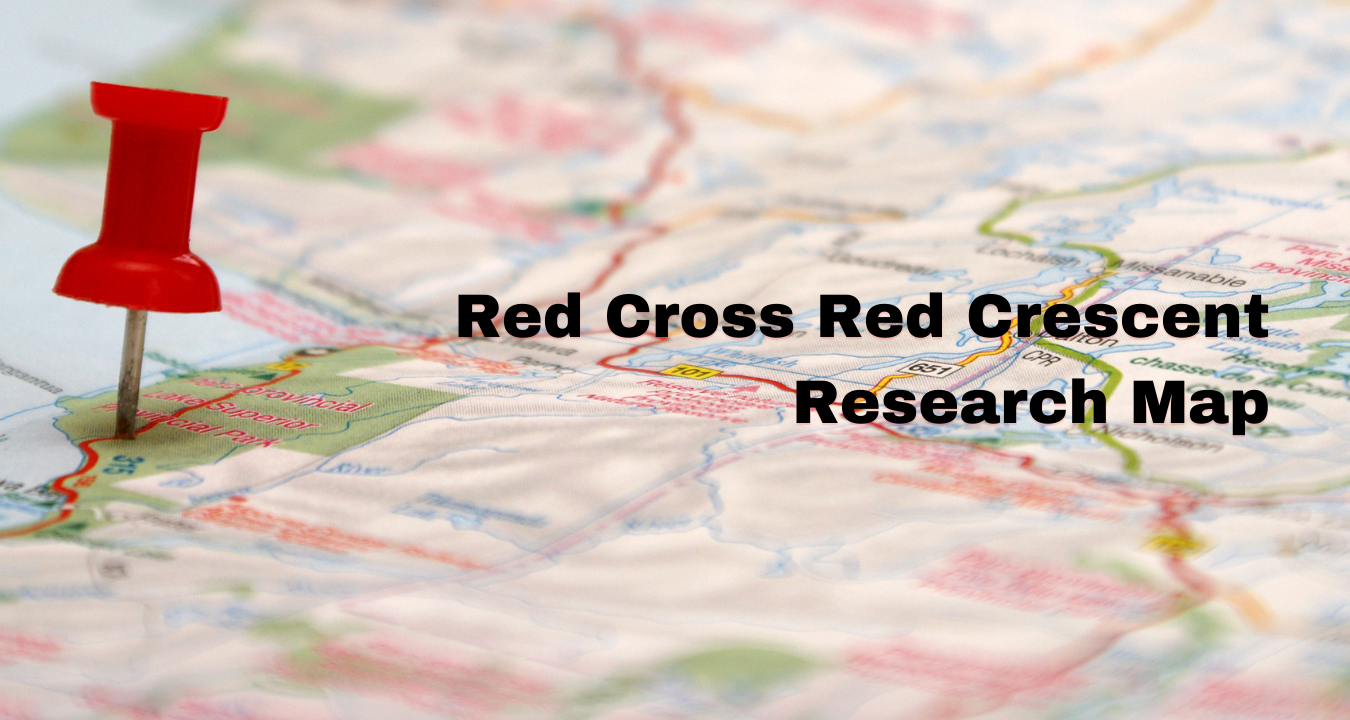
RCRC Research Map
The GDPC host the Red Cross Red Crescent Research Map, a comprehensive collection of ongoing research activities, studies, and academic papers supported by RC3 members. This repository showcases a breadth of research within the global IFRC Network that, in aggregate, rivals the output of many leading universities and research institutions.

